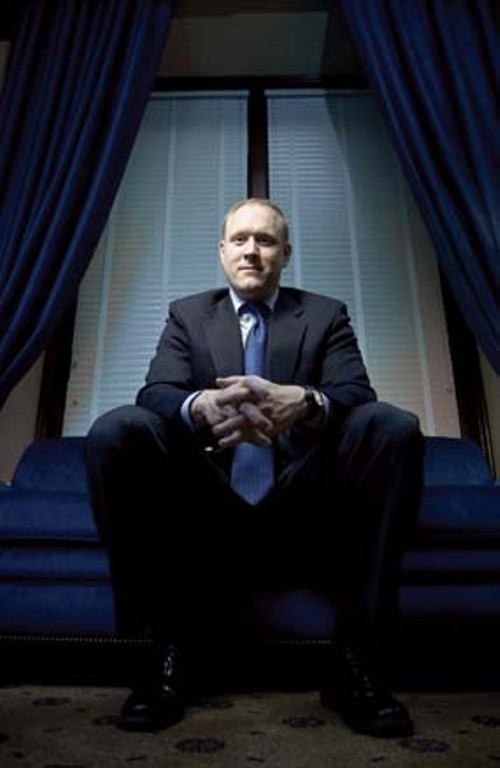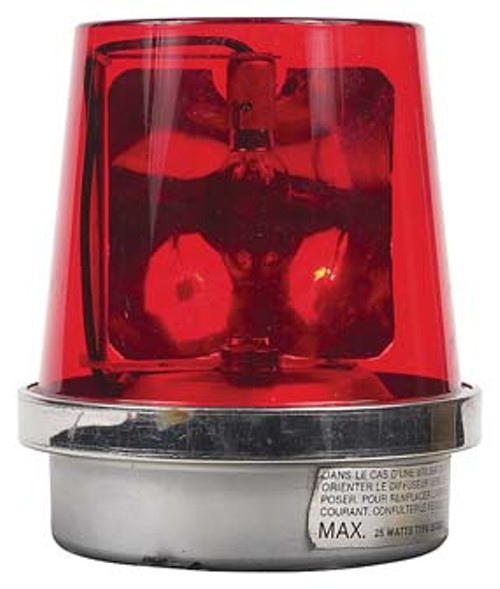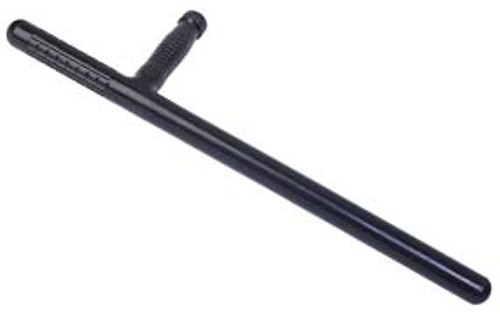Feature | Badgered: The cops’ union pressures Ralph Becker to go soft on police discipline
By Ted McDonough
The first time Salt Lake City police officials tried to get Ty McCartney fired, he’d been on the job just nine months.
That was in 2005. McCartney, the investigator for a police review board launched to probe police wrongdoing by then-Mayor Rocky Anderson, had discovered a secret police department Internal Affairs investigation into alleged “unlawful orders that may be in direct violation of people’s constitutional rights.”
The Salt Lake City Police Civilian Review Board, for which McCartney was the only staffer had never been notified of the probe, despite a city ordinance that says the board was to get notice of all IA investigations. In complaining about McCartney, then-Police Chief Rick Dinse wrote that McCartney had overstepped his boundaries and pursued “an investigation based only upon a rumor.”
Anderson stood by his man then, and he continued to back McCartney through the end of his administration last year. That was when the Salt Lake Police Association president, joined by some council members, again implored the mayor to dump the meddlesome investigator.
Police officials didn’t get the action they wanted until Anderson left office in January. McCartney was given his walking papers by Ralph Becker’s transition team—one of a small handful of appointees not to make the transition from the Anderson to Becker administrations.
“Ty was really good at what he did,” says state Sen. Scott McCoy, D-Salt Lake City, among the longest serving board members of the Police Civilian Review Board and its current chairman following mass resignations from the board last year. “He was a good administrator, a good nvestigator. He was tough and he was aggressive and he did the job.”
In the end, however, McCoy says McCartney and the board bumped against an equally tough police union president in Tom Gallegos. The Police Civilian Review Board collapsed under the pressure, McCoy says. A key player in the Becker mayoral campaign, McCoy does not criticize the decision to replace McCartney and says he believes Becker supports the board’s mission of reviewing police conduct outside the influence of the police department.
Aside from firing McCartney—something requested by the union president Gallegos and Police Chief Chris Burbank—Becker hasn’t made his intentions known for the future of the Police Civilian Review Board. As Becker restarts the volunteer watchdog group, moribund since a public meltdown last year, he will field calls to rein in the board’s wide-ranging oversight of police discipline. Those calls will come from the police union, which, during the just-completed legislative session, backed a bill to make all police discipline secret.
The question for Salt Lake City is whether the board will retain the independence Anderson gave it or revert back to the police-friendly review body Anderson found in 2000 and criticized as “completely toothless.” SLPD Blues
Salt Lake City has had a police-conduct review board of sorts since 1993. Then-Police Chief Ruben Ortega set up the board as his department was being sued by then-lawyer Anderson over alleged police brutality. But the police-dominated board was derided by minority communities. In 1997, then-City Councilwoman Deeda Seed argued for creation of an all-citizen review body. When Anderson took office, he added a budget to hire an independent investigator for the board. The board was given explicit powers to investigate complaints lodged against individual police officers.
The civilian review board ordinance passed by Salt Lake City in 2002 was, and remains, one of the most progressive in the country. But, it has a built-in tense relationship with police. That tension boiled over one year ago last spring just as Anderson’s second term was coming to a close. Allegations flew between sides that the watchdog agency was trying to embarrass officers, and that the police chief and city administration were ignoring the group’s work.
By the spring of 2007, what Anderson hailed as one of his proudest achievements as mayor was in shambles. The police department was investigating members of the volunteer board for alleged crimes. Dirt was flung on the police union president and the review board’s investigator. More than half of the board’s members walked away.
Salt Lake City’s Police Civilian Review Board hasn’t had a full meeting since April 2007. It hasn’t seen any new cases against police since January 2008.
In hindsight, McCartney thinks Salt Lake City wasn’t ready for true independent oversight of police—and not prepared to deal with the uncomfortable truths that such oversight reveal.
“Rocky was ready, but the rest of the administration and City Council were not,” he says. When, at the end of his time in office, Anderson was often out of town, the civilian review board lost its champion, and staff fell back on the impulse to trust the police.
“The CRB can’t be out there by itself,” he says. “Its independent functions depend on support from the City Council and mayor.”
Somebody’s Gotta Do It
A former Sandy police officer and state legislator, McCartney was slapped on the back and welcomed as one of the boys when he was named Police Civilian Review Board administrator/investigator in 2005. Nine months later, then-Police Chief Rick Dinse set down a litany of complaints against McCartney in a seven-page letter to then-Deputy Mayor Rocky Fluhart. The chief’s complaints boiled down to the review board sticking its nose where it didn’t belong.
One instance Dinse complained of was McCartney asking about the lack of cameras in police cars. The review board had asked McCartney to inquire, noting most discipline cases boiled down to an officer’s word, and cameras would make their jobs much easier. McCartney found money had been set aside for in-car cameras, but police department brass had never asked for them.
Dinse also complained about McCartney conducting an investigation on his own.
McCartney had received an anonymous tip that an investigation had taken place inside the police department but hadn’t made it to the Police Civilian Review Board. His investigation of whether or not there had been an internal-affairs investigation took one month and eventually found the tipster was right, according to a letter McCartney wrote responding to Dinse’s allegations. Police had probed allegations from police officers that a sergeant instructed them, “to execute unlawful orders that may be in direct violation of people’s constitutional rights.”
The investigation had been filed away at the police department under “M,” for “miscellaneous.” That category, in the Police Department’s interpretation, meant it didn’t have to be turned over to the Civilian Review Board. The entire documentation of the investigation consisted of a single memo noting the allegation was determined to be unfounded. Uncharacteristically, McCartney decided not look further. He wrote the Anderson administration he’d received warnings from police that, “You better watch your back because there are some pissed off people right now.”
But McCartney didn’t completely cower, writing to the chief, “while I will do everything I can to minimize embarrassment to the department, I cannot and will not, be intimidated … The consequences of ignoring or whitewashing misconduct strike a damaging blow to the very foundation of our community.”
In 2006, the board audited the police department’s “M” files, discovering, according to board-meeting minutes, 15 files with allegations the board thought should have come to the board’s attention.
“It was almost as if some things were being swept into ‘M’ files, and we weren’t seeing them to review conduct that under any other circumstance the board would have wanted to see,” McCoy says. “The focus all of a sudden became on Ty, even though every step of the way the board was 100 percent backing him.”
The board appealed to the mayor and when Chris Burbank took over as police chief in mid-2006, it got access to the “M” files.
Chief Dinse also complained when the board in 2005 wrote up a police captain for interfering with an investigation. The captain was accused by the board of tipping the police union about evidence gathered against another officer. Three years later, that captain, Terry Fritz, is an assistant chief to Chris Burbank, himself the former head of Internal Affairs.
A Leaky Vessel?
The Police Civilian Review Board had already crossed swords with several police higher-ups but may have sealed its fate by voting to look into allegations that union president Gallegos sexually harassed a female police employee in 2006.
In the union president’s view, the board had moved from looking impartially at police interactions with the public to digging dirt on people it didn’t like. “I had a target on my back,” Gallegos says. The board has no business peeping into what goes on behind Police Department doors, Gallegos says, let alone criticizing the police chief’s punishment decisions as too lax, as the board did in his case.
“The board was intended for excessive uses of force,” Gallegos says. “But it turned into, if it was a sexy case, an affair or scandal, they seemed to be interested.”
All hell broke lose in April 2006 when someone leaked to The Salt Lake Tribune that the Police Civilian Review Board had sustained an excessive force complaint against a police officer for allegedly roughing up 74-year-old Korean War veteran Miles Lund in Liberty Park. By board policy, that announcement should have come only after the police chief had also rendered a decision, or after a board vote to release the information. The police union was outraged and immediately pointed the finger of suspicion at McCartney in a letter to then-Mayor Anderson.
The police administration launched an investigation to find the leaker. Anderson stopped the investigation, noting the police probably shouldn’t be investigating the body charged with watchdogging the police. An outside investigator never found the leak. Quietly, police administrators made their own determination on the Liberty Park case last July, agreeing with the board and sustaining a charge of “unreasonable force” against the officer.
In the meantime, Gallegos’ adult-themed discipline got into the press and someone began shopping McCartney’s 10-year-old Sandy City Police Department discipline record to City Council members. Gallegos acknowledges asking Sandy officials for McCartney’s records, but denies giving the information to anyone except Mayor Anderson. A Police Civilian Review Board member allegedly threatened to release information to embarrass the chief. Board members fought with Mayor Anderson, beginning a cascade of protest resignations from the board.
McCoy calls the leak brouhaha “a mountain out of a molehill.” In fact, days after the “leak,” the essentials of the review board’s Liberty Park decision came out in the board’s regularly monthly report, a public document. At base, what happened was that the fight with the union president “just kind of snowballed,” he says.
Both Chief Burbank and union president Gallegos acknowledge they asked Becker’s transition team to replace McCartney.
Burbank says the relationship between the department and the board had been ruined by “bitter conflicts and hatred between the union president and members of the board.” The conflict discredited the whole body in the minds of officers, since the union represents every officer brought up for discipline, he said.
At the end of last year—in the twilight between the Anderson and Becker administrations—the police union was moving quickly.
On Nov. 18, just two weeks after Becker’s victory, Lyn Creswell, an Anderson staffer who would become Becker’s chief administrative officer, wrote to city staff asking them to work with the police union in the Legislature to change Utah’s public-records law. His memo said the union wanted to “protect” police discipline in the same way Salt Lake County Sheriff’s deputies’ records are protected. Many didn’t understand until later that sheriff deputy discipline is completely secret. The bill died.
During city council meetings preparing a budget for this year, then-Councilwoman Nancy Saxton proposed zeroing out funding for the Police Civilian Review Board, doing away with the ordinance that created it and starting from scratch. On Dec. 14, 2007, the city began advertising for a new administrator for the board.
A few months earlier, in the wake of the “leak” scandal, city administrators put forward proposed changes to the ordinance that created the Police Civilian Review Board. McCoy says the board had no problem with a proposed criminal penalty for improperly releasing information. However, in a letter to the Anderson administration, the board did question a proposed ordinance amendment to limit its access to “ongoing” investigations. Was that a loophole like Dinse’s old “M” files?
Under the proposed ordinance rewrite, whole Internal Affairs files would no longer be available to the Police Civilian Review Board investigator. Board panels that weigh discipline cases would look at current allegations but might not have access to an officer’s earlier disciplinary history. Had the rules been in effect, for example, when the board looked at Gallegos’ file, board members would have known he was charged with sexual harassment but not that he’d been written up earlier for a similar offense.
The City Council delayed amending the review board ordinance until after November’s elections. The two council members most critical of the review board—Saxton and Dave Buhler—are no longer on the council, and it is unclear if the idea will be resurrected. Becker hasn’t given city staff direction on the subject.
During the mayoral election, the police union asked some candidates if they would replace the board investigator. Becker, according to Gallegos, wouldn’t commit to firing McCartney, and the union endorsed another candidate. While Becker initially backed the legislative proposal to restrict access to police disciplinary records, he later backed away from the bill. The mayor told City Weekly the bill had been presented to him as a “clean up” measure, and he never supported complete secrecy for police discipline.
Burbank says he doesn’t have any specific changes in mind for the Police Civilian Review Board, but notes the board has greatly expanded from the use-of-force board begun in the early 1990s by Chief Ortega. “Public trust issues were the reason the board was created. Now, it’s a records clerk having an affair, the office romance,” he says. “I’m not opposed to that, necessarily. I don’t think we have anything to hide. But is that focus where the board needs to be?”
That said, Burbank does not want the board to go away. For one thing, it gives cover to his discipline decisions. “I do think [the Police Civilian Review Board] is crucial in modern policing,” he says. “I don’t think I could function without it.”
Gallegos does want the board to change. The union president says the Police Civilian Review Board should examine allegations of inappropriate use of force, and that’s all. And, no information from board reviews of individual officers should ever be released to the public. Rather, the board’s role should be strictly to advise the police chief, he says. If members don’t like what the chief does, they can always complain to the mayor.
Deeda Seed was saddened by the blow-up of the board which she helped to create. “It turned into something that did harm instead of good,” she says. “Things got mucked up.”
The problem, as Seed sees it, is lingering confusion about the intended role and authority of the Police Civilian Review Board. Does the board’s role end at recommending whether or not a complaint should be sustained, or should it be allowed to second guess the police chief’s punishment? What happens when the chief and board disagree? How does the board communicate its concerns?
All those questions should be nailed down, Seed says. There is tension built into the system, but it was made unworkable in Salt Lake City by misunderstanding.
Salt Lake City isn’t alone in grappling with police oversight. In Seattle, tensions between police oversight agencies and the Seattle Police Officers’ Guild boiled over last year. As in Salt Lake City, the issues were a leak from the board and complaints the police chief was letting officers off too easily. But the outcome was different. In Seattle, a blue-ribbon commission last month recommended expanded oversight board powers, stiffer punishments for officers, publication of Internal Affairs files and making the chief explain himself in writing when he reverses a board decision.
In Salt Lake City, McCoy is looking forward to a fresh start. Chief Burbank says he’s anticipating a new era of cooperation and communication with the Police Civilian Review Board.
McCartney, however, warns peace and love between the board and police department are possible only if the board isn’t doing its job. “If you’re looking at dirt, you’re going to get dirty,” he says.
McCartney’s replacement, Rick Rasmussen, is a retired FBI agent who worked with the city Police Department on the 2006 Destiny Norton child kidnapping and murder, the case that first brought Burbank to the public eye. Like McCartney before him, Rasmussen has already been welcomed on the police union’s Webpage as one of the boys. Only time will tell how long the honeymoon lasts.
More by Ted McDonough
-
Chaffetz's Constitution, Health Care Reform, Utah's Economy & Claire Geddes' Return
Congressman Jason Chaffetz, R-Utah, is cosponsoring legislation that would deny citizenship to children born in the United States to noncitizen parents, reversing long-standing law that everyone born in America is a citizen.
- Jul 15, 2009
-
Stimulated
If you don´t like the federal stimulus yet, wait a few months.
- Jul 15, 2009
-
Skinny Utahns, Camp Williams' Data Center & BCS Busters
Utahns are the eighth skinniest people in the country, according to new statistics from the Robert Wood Johnson Foundation.
- Jul 8, 2009
- More »
Latest in Cover Story
Readers also liked…
-
Forget the family pedigree—Robert F. Kennedy Jr should not be the next president of the United States
Trojan Horse
- Jun 21, 2023
-
Women decry harassment and toxic culture at St. George auto dealership
Men at Work
- Oct 11, 2023











